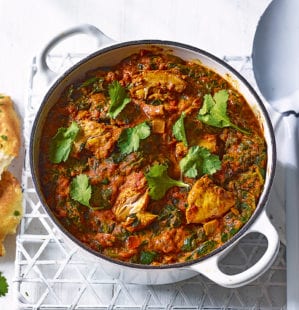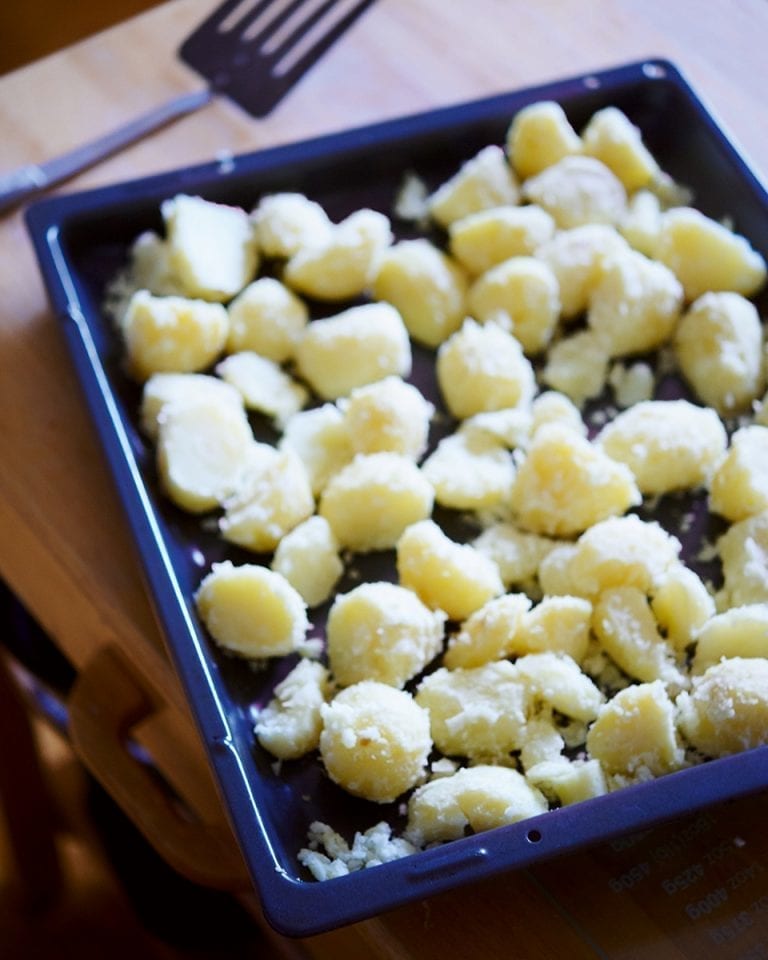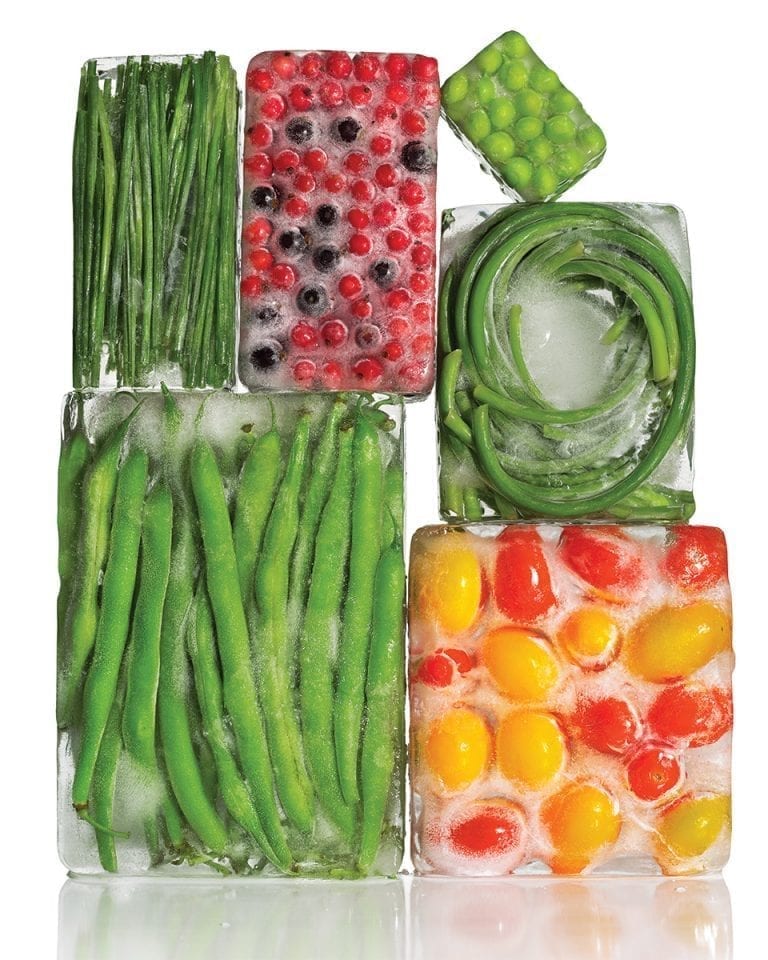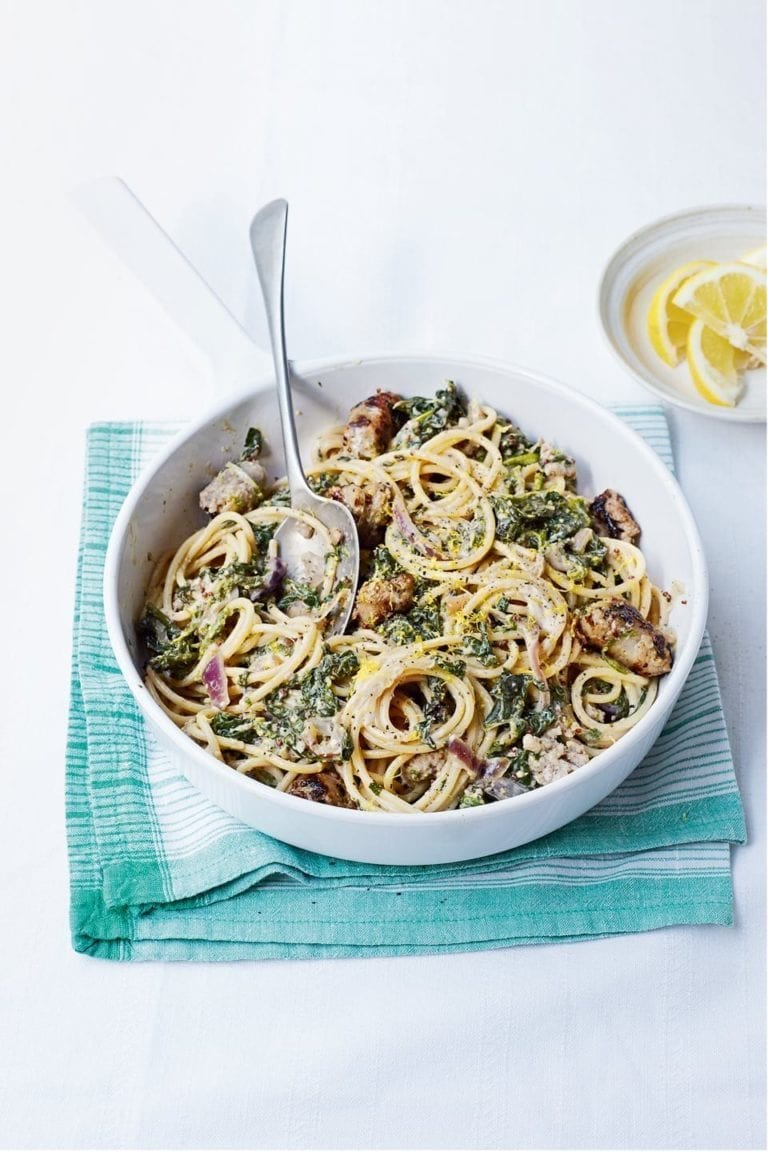The ultimate fridge and freezer guide: everything you need to know
What temperature should your fridge and freezer be set to? How long will food last when stored in the fridge? What should be stored where? Getting to know your white goods will help you keep your food at its best and avoid unnecessary food waste.
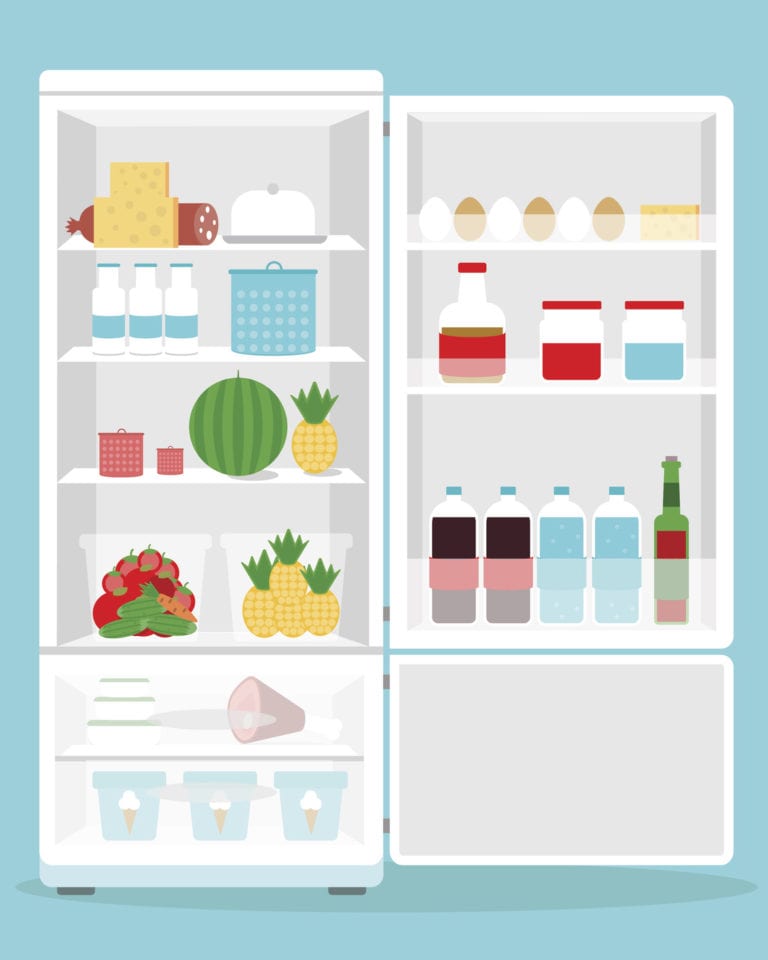
A complete guide to your fridge
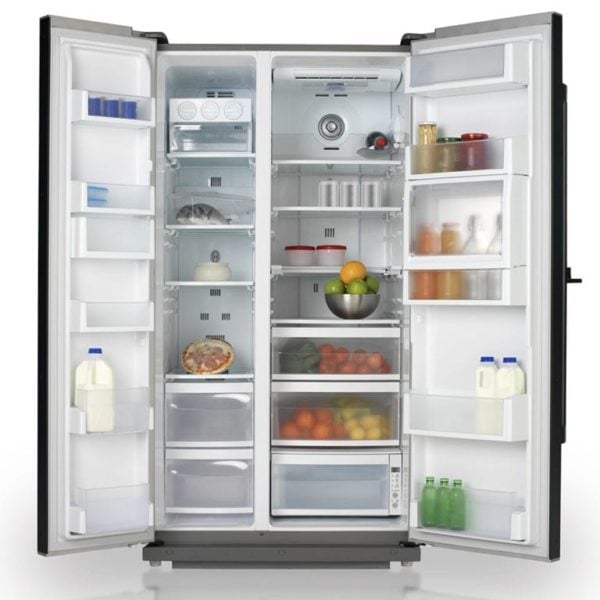
What should the fridge temperature be?
It should be 0-4°C. Don’t overcrowd it – cold air needs to flow easily around the food to keep it cold.
How long will food last in the fridge?
Here are our general rule of thumb guides to how long food will last in the fridge:
- Fresh fish will keep 1-2 days
- Raw meat, poultry and sausages 2-3 days
- Bacon 7-10 days
- Salad and vegetables 3-4 days
- Milk 5 days
- Hard cheese up to 3 weeks.
Which foods don’t need to go in the fridge?
Foods like tomatoes, bananas, melons or potatoes all don’t need to be stored in the fridge. Most fruit in general doesn’t need chilling, plus it can cause yellowing in green veg stored nearby. Unless your kitchen is particularly warm, eggs don’t really need to be kept in the fridge either and it is recommended that they are stored at room temperature before baking. Here’s a list of foods which shouldn’t be stored in the fridge:
- Potatoes : The cold turns the starch into sugar, making the spuds gloomy and sticky when cooked. Store in a cool, but not cold, dark place.
- Cut basil: If it’s cold enough to put on a jumper, it’s too cold for basil. Store it out of direct sunlight, standing in a glass of water, loosely covered with a plastic bag.
- Onions: They keep longer in the fridge, but the smell can taint other ingredients. Keep them with your spuds in a cool, dark place.
- Eggs: They are better suited to making sauces, bakes and poached eggs when they’re not fridge cold.
- Tomatoes: The flesh relaxes and ripens at room temperature, enhancing the flavour. The cold damages the cell structure of tomatoes, giving them a mealy texture. Store out of direct sunlight.
- Fruit: Bananas turn black in the fridge and won’t ripen properly. Fruit such as peaches, apples and pears are all happy stored at room temperature, too – and they’ll taste better for it.
- Cheese: Softer cheeses such as cream cheese, feta and mozzarella need to be chilled, but for others the situation is more complex. We like cheese expert Charlie Turnbull’s advice: “A fridge is to cheese as a garage is to a car. You put the car away when you’re not going to use it for a while.”
- Jams/chutneys: Marmalade doesn’t need the fridge and honey goes hard. Yes, some soft-set jams last a bit longer if chilled (especially in summer) but if eating them within a couple of weeks of opening there’s no need. As for chutney, the vinegar preserves it perfectly well at room temperature.
- Ground coffee: How many people of you know who put coffee in the fridge to keep it fresh? It’s a myth. It kills the flavour and does nothing to prolong its life.
Fridge sections: what food should be stored where?
DOOR
It warms up every time it’s opened, so it’s best reserved for less temperature-sensitive items, such as juices and condiments. Despite the handy bottle racks, it isn’t the best place to keep your milk.
Top and middle shelves
With the most consistent temperature, these are good for dairy, ready-to-eat and packaged foods, cooked food, leftovers and berries (likely to get squashed in the salad drawer).
Bottom shelves
Keep anything raw – meat, fish, poultry – well covered, lower down in the fridge to avoid the risk of juices dripping onto other food.
Salad drawers
Soft herbs wrapped in damp kitchen paper will last best here. Keep veg and fruit apart.
A complete guide to your freezer
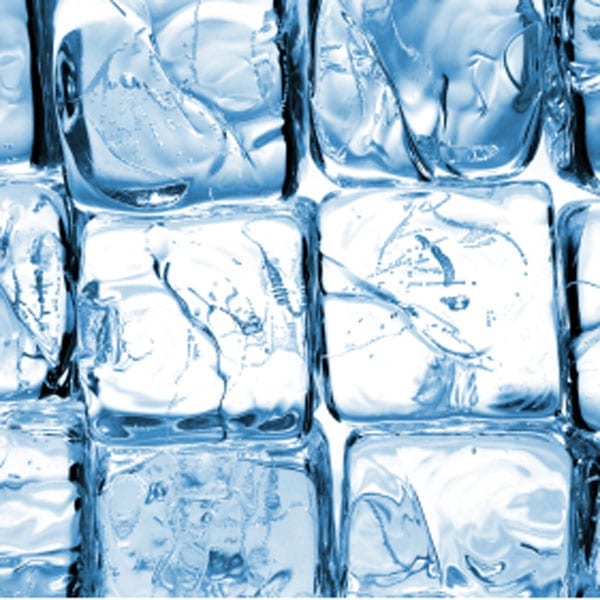
What temperature should the freezer be set to?
It should be -18°C. A full freezer uses less energy to keep things frozen at the correct temperature, so keep it as full as you can.
How long will food last in the freezer?
Use soup, ice cream or bread within 3-4 months; meat, white fish and fruit within 6 months; and blanched vegetables within 9 months.
Can you freeze dairy products?
In most cases, yes, but sometimes the texture will change. See below for specific examples:
- Milk: tends to separate in the freezer, so give it a shake when defrosted. Freeze soon after buying and don’t freeze for more than one month.
- Single cream: don’t free as it turns watery
- Double cream and whipping cream: These freeze best when whipped before being frozen. Store for up to 3 months.
- Butter: freezes well. Cut it into smaller pieces, weigh, then wrap individually. Label with the weight and date. Use within 3 months.
- Yoghurt: Don’t freeze. The texture can be watery and lumpy.
- Hard cheeses: Cheddar and parmesan can be frozen, but use for cooking afterwards as the texture won’t be great.
- Soft/blue/French cheeses: Better not to freeze, but if you do they can be used in cooked dishes once defrosted.
Want to get organised with some batch cooking? Browse our collection of freezer-friendly recipes, including healthy chilli, vegetarian beetroot burgers and fish pie.
Subscribe to our magazine
Food stories, skills and tested recipes, straight to your door... Enjoy 5 issues for just £5 with our special introductory offer.
Subscribe
Unleash your inner chef
Looking for inspiration? Receive the latest recipes with our newsletter
